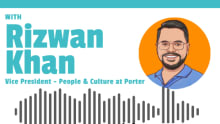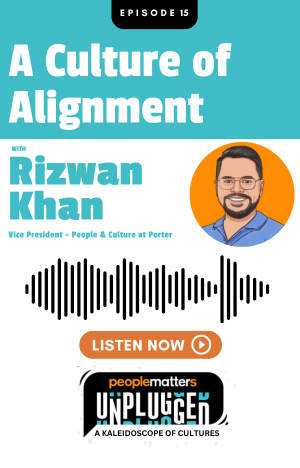New work arrangements: Will we see a shift from ‘Days Off’ to ‘Days On?

With people working in different modalities, many human capital leaders are striving to revise the policies, practices, and rules associated with work arrangements. Recently, I travelled to Northern Europe and one of my connecting flights was cancelled. As a result, I had the opportunity to spend several quality hours in the airport lounge where I overheard this conversation:
Staff (Voice from the speaker phone): “Boss, I am not feeling well, so I will not be at work today.”
Boss (in the lounge): “But you work from home, so you are at work already.”
Staff: “Yes, but I don’t feel well.”
Boss: “Are you going to the hospital? Is this a serious condition?”
Staff: “No, I think I just need to rest at home.”
Boss: “ You can rest while working! The bottom line is that you are already at work and since you can have this conversation with me, then you are capable of working. Have a good day at work! Goodbye.”
To some readers, this may illustrate the decline in common courtesy as some people seem so self-absorbed that they don’t recognise that walking around with a phone on the speaker setting is quite discourteous to others. While this may be true, our focus here is the changing expectations for work arrangements, which is also highlighted in the conversation. New questions are emerging such as: Does someone working remotely still have access to the use of sick days? This might raise other questions such as: What is the difference between going away on holiday and working from a different location? – or what does it mean to be ‘At work?’
Traditional employment models often include the parameters for performing work activities that often specify the work arrangements. For example, a newly hired engineer working in a manufacturing plant after university may be provided with several paid holidays, a set number of days of personal holiday, and perhaps a small number of sick days. More recently, employers are bundling these into a general category of Paid Time Off (PTO) days. In other words, it is expected to be at work on normal days except for ‘Days Off.’
Recently, the fight for top talent has caused many employers to revisit the work arrangements such as flex time, remote work locations, paid time off, alternative work schedules, and other options. Given the changes in work modalities and flexibility, how might the nature of work and work arrangements evolve in the future?
To consider the impact on work arrangements, we might take a lesson from history. The modern form of employment and nature of a ‘Job’ took shape in the late 1800s as companies became larger and mass manufacturing began. Eventually, the concepts related to working hours, weekends, benefits, and work arrangements were formalised as management and labour unions evolved. If we take a step back to the forms of work before this time, we would find a ‘Pay for Output’ or piece-rate arrangement. In other words, instead of paying a set wage, a worker would be compensated for the number of pieces or parts produced.
In the historic ‘Pay for Output’ work arrangement model, there were no holidays, no work hours, no vacation days, and certainly no specified weekends. Instead, the work arrangements were managed by the worker. We still see examples of this model in some occupations. University professors are a good example. Typically the university will require a professor to teach several courses and have expectations for research output along with some level of service that benefits the university and/or society. For professors in most research institutions, there are no days off or vacation days – there are only expectations for ‘Days on’ (teaching days, graduation, occasional meetings, etc.). Of course, this ‘Days on’ model may only be appropriate for some professional occupations, yet it may provide some ideas as we consider new work arrangements.
As the war for talent continues in many geographic locations and industry sectors, will we see more organizations change work arrangements from ‘Days off’ to ‘Days on’? The recent rise of gig or contingent work and the increased adoption of remote work provide a strong case for this shift. In the information technology area, for example, leaders may have the option of hiring contractors or gig workers for specific output such as programs, applications, or interfaces. They would also have the option of hiring employees based on traditional work arrangements. A potential new emerging option is a blend of both where the business hires the employee with annual targets for output (the ‘Days on’ approach), instead of traditional models based on work hours. This approach requires some clarity in the value, time, and complexity of tasks to create a fair work arrangement, yet holds potential in some professions and industries.
The challenges associated with finding and retaining key talent as the future of work models evolve are pressing human capital leaders to reconsider work arrangements. In doing so, it seems prudent to revisit the assumptions we have about employment, challenge the conventional systems, and consider trials for new work models. At the same time, we are all in the process of learning and exploring and I would welcome your feedback and ideas as we experiment and research various work arrangement approaches. By challenging convention, I hope that we will see human capital leaders emerge with a stronger, more holistic perspective with new ideas to engage talent in the organization for competitive advantage.
The ”Days on” work arrangement concept may seem radical in some contexts and would only be possible in organizations with cultures anchored in trust. Yet, the evidence based on the future of work would suggest that we might see more of a shift in this direction.
In my future visits to airline lounges, I don’t expect to find fewer discourteous people on speakerphone, but perhaps we might find that the boss-staff conversations will be more about the work, rather than concerns about the details of work arrangements.














